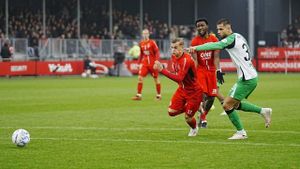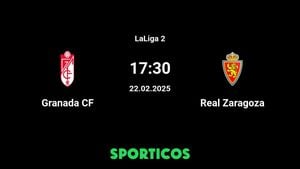Former Proud Boys leader Enrique Tarrio was arrested Friday near the U.S. Capitol, just weeks after being pardoned for his role in the January 6, 2021, insurrection. The arrest occurred on charges of simple assault following his participation in a press conference alongside other supporters of former President Donald Trump.
According to the Capitol Police, the incident unfolded when Tarrio attempted to swat away the cellphone of a woman who was protesting nearby, asserting her right to confront him following the controversial news gathering. The protester had been vocal during the press conference, which drew attention as it featured Tarrio standing among other January 6 defendants, all expressing their grievances against the government.
Witnesses reported seeing Tarrio strike the woman’s arm and her cellphone after she aimed the device at his face. Capitol Police stated, “The woman told our officers she wanted to be a complainant, and the man was arrested for simple assault,” characterizing the encounter as one of misdemeanor assault.
Tarrio, who had just concluded his appearance at the press event, was initially reported to have left the gathering without any incidents. Instead, the situation quickly escalated, surprising many who were present. The Capitol Police arrested him nearly four years after he played key roles in organizing the very riot they faced on January 6.
The arrest was particularly shocking because it followed Tarrio's recent release from federal prison, where he was serving what would have been the longest sentence among those convicted for the Capitol riot—22 years—until Trump’s clemency on his last day as president.
At the news conference, Tarrio and his associates sought to portray themselves as victims of injustice, downplaying their conduct during the insurrection, and calling for legal action against the Justice Department for what they termed unfair prosecutions. Alongside Tarrio were several of his fellow defendants, including Stewart Rhodes, the founder of the Oath Keepers militia, who was similarly convicted of seditious conspiracy.
The tension between the Proud Boys and the gathered protesters remained palpable. The protester who faced Tarrio had been following the group and documenting the press conference before the altercation took place, reportedly blowing whistles and shouting insults.
After the chaos ensued, Tarrio was apprehended and escorted by police, swiftly put in handcuffs, and transported away from the scene. He later expressed bewilderment over the incident, which occurred after the press event, during which he had envisioned presenting a bold front with his former comrades.
Media coverage of the event captured the surreal juxtaposition of Tarrio's recent pardon and his subsequent arrest for what is seen as continued turbulence surrounding January 6 defendants. Commentators and analysts noted the irony, highlighting how the Capitol Police, who had endured immense violence from rioters on January 6, were once again called to respond to those same individuals, who now presented themselves as martyrs for their cause.
While Tarrio faced his new legal challenge, the other Proud Boys present, including Joseph Biggs and Dominic Pezzola, managed to avoid similar confrontations with protesters and distanced themselves from the incident afterwards. They later reported learning of Tarrio’s arrest only after they had returned to their accommodations nearby.
The aftermath of Tarrio's arrest has sparked discussions about the continuing ramifications of the January 6 events and how those involved are perceived by both the public and legal authorities. Following his arrest, Tarrio was reportedly informed by police later on Friday evening about the possibility of the assault charge being dropped.
Witnesses and observers are now left reflecting on how these sequences of events—arrests, pardons, and confrontations—serve to rewrite the narrative surrounding January 6. The tension remains high as former members of the Proud Boys and other extremist groups continue to figure prominently within the discussions on accountability and justice relating to their actions during the insurrection.
Indeed, this reflects not only on Tarrio’s own legal battles but also commands attention toward the broader societal implications of how violence, dissent, and ideological clashes manifest within the American political sphere.
Despite the uncertainty of the next steps for Tarrio and his fellow defendants, the continued scrutiny over their actions highlights the lasting impact of January 6 on the American political and social fabric.



